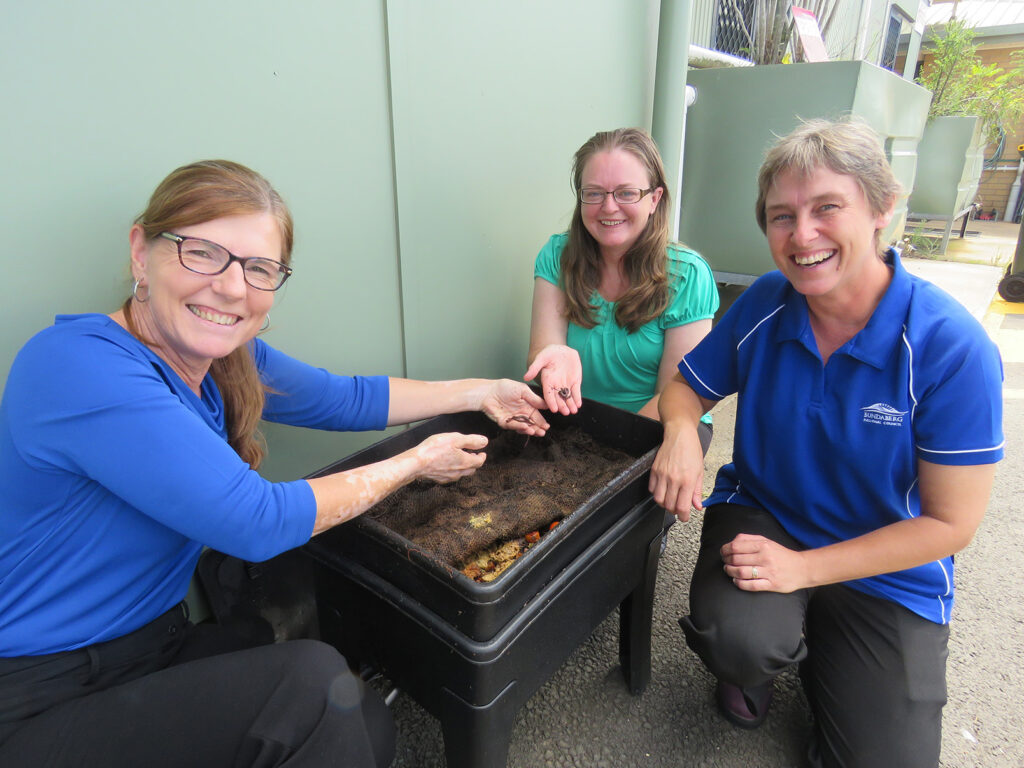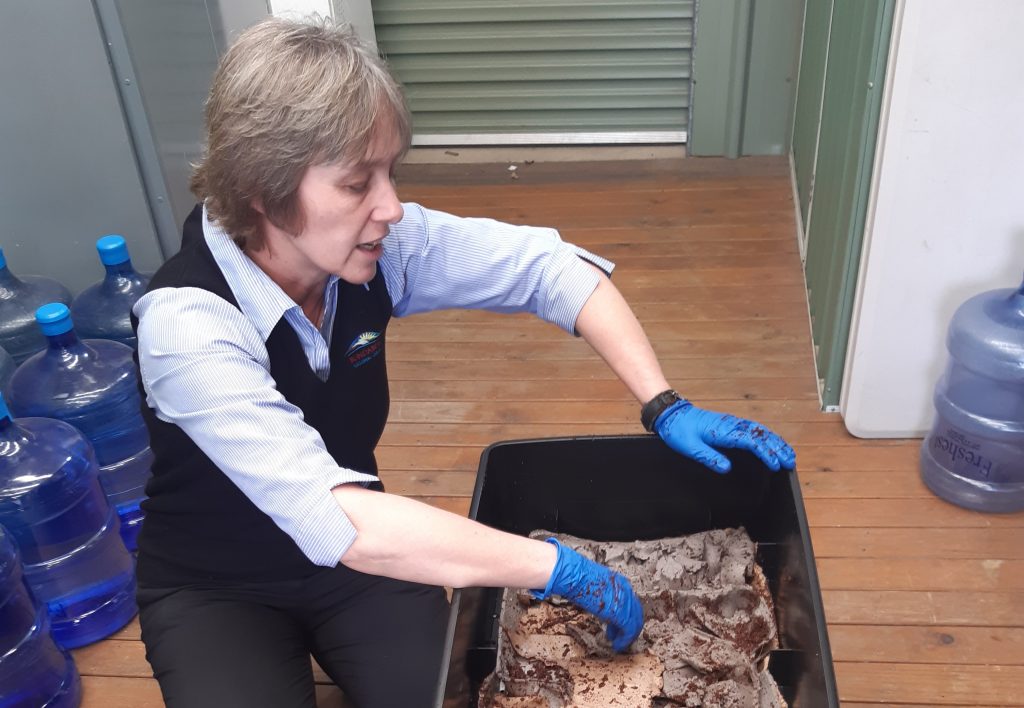
In order to utilise waste and practice alternative ways to recycle, Bundaberg Regional Council is encouraging residents and businesses to create worm farms.
It comes after the Waste and Recycling Services team implemented its own worm farm for the disposal of kitchen scraps from the staff lunch room.
“The team was excited to implement this new way of recycling within their work environment earlier this year,” Waste and Recycling portfolio spokesperson Cr Tanya McLoughlin said.
“They started with 1000 worms in a worm farm kit, purchased from a local hardware store, and made up a hessian bag filled with soil for their living space.
“Once a week, one of the team feeds the worms and gives them a drink of water to keep the hessian bag moist.”
Cr McLoughlin said there were many benefits in creating a worm farm.
“Worm farms are a great way to reduce waste to landfill, reduce your carbon footprint and become more sustainable,” she said.
“The liquid from the worm farm can be used as a organic liquid fertilizer and the worm castings as a soil fertilizer.
“Worms are great for gardens as well!”

What to feed your worms
• Most fruit and vegetable scraps
• Pulp from a juicer
• Cooked food
• Tea leaves/bags – no strings
• Coffee grounds (not too much)
• Crushed/ground eggshells
• Shredded egg cartons, toilet roll inners or paper lunch wrap
Tips on keeping your worm farm healthy
- Compost worms benefit from a balanced diet.
- They will eat most normal kitchen fruit and vegetable scraps.
- Avoid feeding the worms large quantities of meat, citrus, onions and dairy foods.
- Some processed food also contains preservatives, which discourage the worms from eating it.
- The smaller and softer the scraps, the easier it is for the worms to digest and process them into castings.




